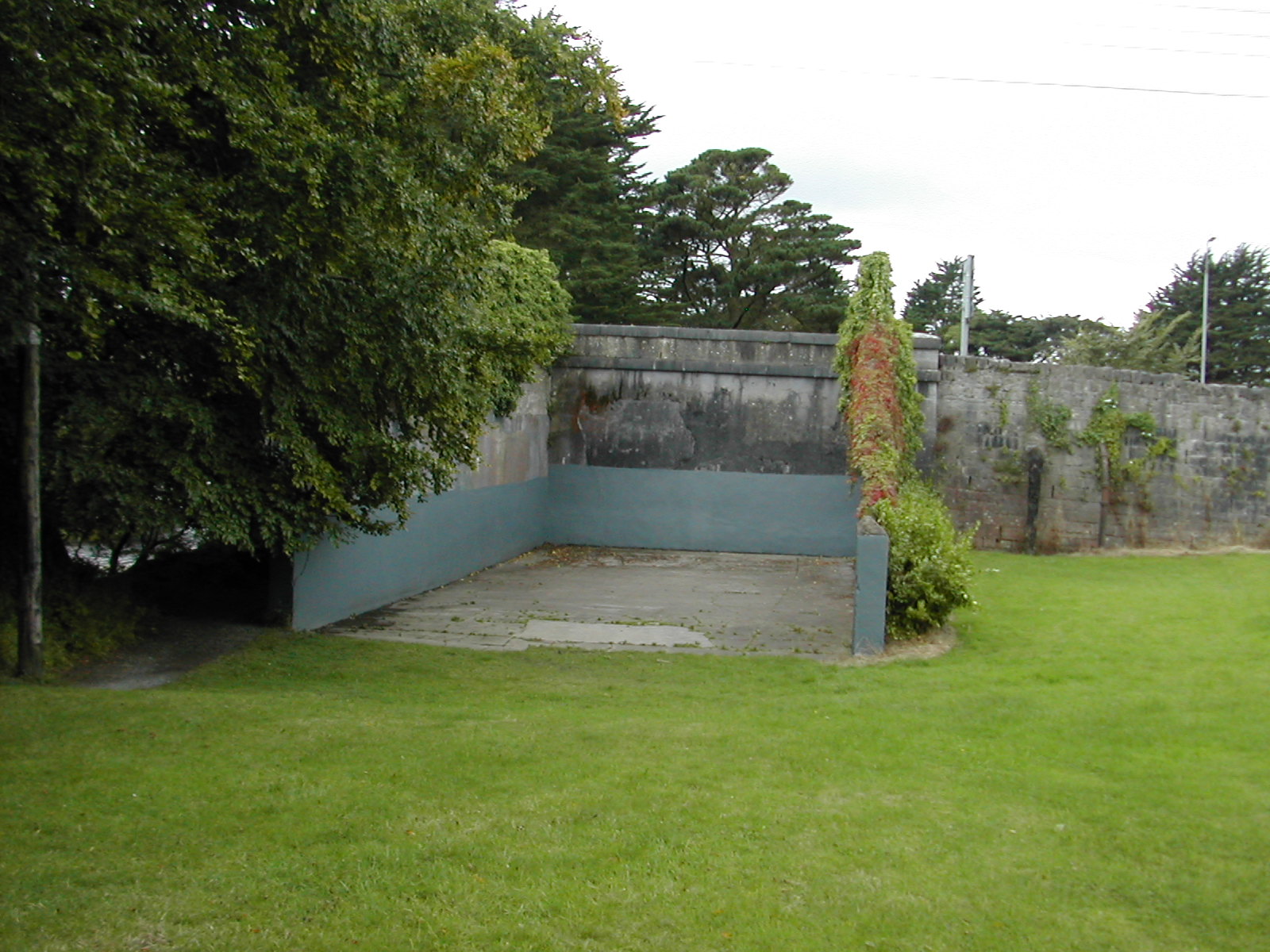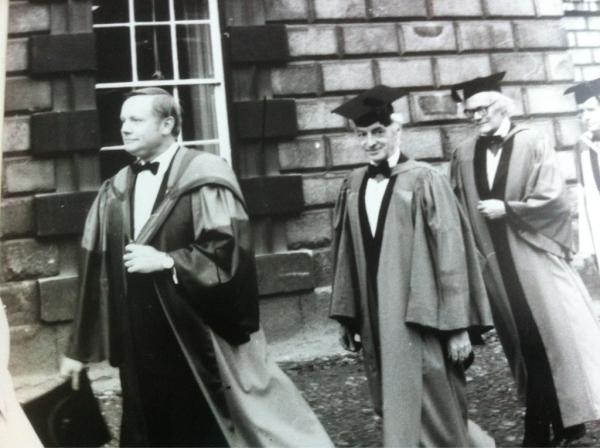In response to a query about the Boltons after whom the cross was named. Michael Lynch, County Archivist has done a bit of searching and he has come up with the following;
“In relation to Bolton’s Cross, I had a look at Griffith’s Valuation, and found that for Skehanerin Lower, the Knight of Kerry is listed as being occupier of 4 plots of plantation land (i.e. forested land) in this area, 3 strips of which border the road leading to and from Bolton’s Cross. The immediate lessor is given as Robert Bolton.
The Tithe Applotment Book (1830) for Listowel parish lists “Mr Bolton’s Demesne” and “Mr Bolton” as holder of the same land, along with another plot listed to 2 other men (Mulvihill and Horan).
As to who these Boltons were, it is not easy to say! The “Kerry Evening Post” (22 May 1833) gives a marriage of Robert Ellis Bolton, youngest son of John Bolton, Prospect Lodge, Listowel, to Christiana, 3rd daughter of Mr Haycroft, Doneraile. This couple seems to have moved to Doneraile, as subsequent records show a Robert Ellis Bolton L.A.H.D. (I don’t know what that set of initials stands for!) buried there on 23 April 1890, aged 77 years & 10 months. Christiana was buried at Doneraile on 9 July 1886 (aged 71).
I tried for a “Prospect Lodge, Listowel” in Valerie Bary’s “Houses of Kerry”, but no joy there either.”
Thank you, Michael. That sheds some light on the matter for us. I googled L.A.H.D. and got nowhere. I wonder if any reader has any idea what those letters stand for.
The original request for information on Bolton’s Cross came from Jonah McKenna Moss. In a follow up letter he said:
“The Justice family was a large wealthy Anglo-Irish protestant family), with two branches which resided in Kerry, and Mallow area in Cork. All the various family trees agree on the point that the daughter of John Bolton and Mary Justice, Julia Bolton married one of the Mallow Justices (my ancestor), uniting the two families again. The Mallow Justices married into the Allens, Ashetons, Barret, and Holmes families as well. One branch converted to Catholicism and moved to Boston and Melbourne Australia.
Essentially, I am trying to figure out why there is a place in Listowel called Bolton’s Crossroads, and which Boltons it was named for, since there is a high likelihood that they might have been connected to mine. “
>>>>>>>>
John Fitzgerald penned this poem about a memorable joust in the old ball alley. He says
“Was delighted to see the piece relating to the artwork generated on the old ball alley. Sad to have seen it neglected for so long especially since it was a great gathering ground for young and old when I was growing up..
The attached is a piece I wrote relating to the one of the many great games we were privileged to see in the 1950’s. At that time youngsters had to apprentice on the outside wall of the alley facing towards Bridge Road on a mud floor until they were good enough to mix with the masters in the alley proper.
The foursome mentioned in the poem are Junior Griffin, Tom Enright and Dermot Buckley from the Bridge Road and John Joe Kenny from Patrick Street.
Alas.only Junior survives, and, by all accounts, is still hale and hearty.”
I know the poem will bring back many happy memories for Junior and a few more who were young in Listowel in the 1950s

The
Alley
Standing on the dead line
I face the pockmarked wall,
it hides the bridge above me
fond memories I recall,
the side walls mark the
theatre,
the concrete floor the stage,
four players take their places
the finest of their age.
The cocker’s hopped and
hardened,
Junior’s feet fix solidly
he contemplates the angle
of the first trajectory.
His swinging arm begins the
game
the ball’s hit low and fast,
a signal to John Joe and Tom
this will be no soft match.
Dermot standing by his side
sees his neighbour win first
toss,
a simple game to twenty one
no ace is easily lost.
I watch them from the grassy
mound
behind the dead ball line
hear the cries of older boys
cheer each one at a time
and in the space of half an
hour
the ball has weaved its way
through every nook and cranny
in this battlefield of play,
the long ball to the back line
the close one to the wall
the deadly butted killer
seemed to hit no wall at all
and in end the four of them
take leave just as they came
and beckon us to take our
place
and learn more of their game,
the game that gave such
pleasure
the game I got to know.
when I was young and full of
fun
in the Alley years ago.
>>>>>>
I met Junior recently and I asked him who won the handball match. He told me that there were no winners or losers because as soon as you won one game you were challenged to a rematch.
There was usually a little wager on the game. Money was scarce enough so the bet was small but once Junior was on the winning side of a 2/6 (a half crown) bet. He went double or quits until the money was astronomical, and no body had any hope of paying it.
In those days the glory of winning was everything. People did not expect medals or trophies. They were happy just to win.
<<<<<<<<
http://www.irishabroad.com/Blogs/PostView.aspx?pid=3657
Some very interesting stuff here on post war Irish in Australia.
<<<<<<<
A picture by John S. Doyle of Neil Armstrong, Saul Bellow and Robert Lowell, TCD 1976, posted on Twitter by Rosita Boland.

